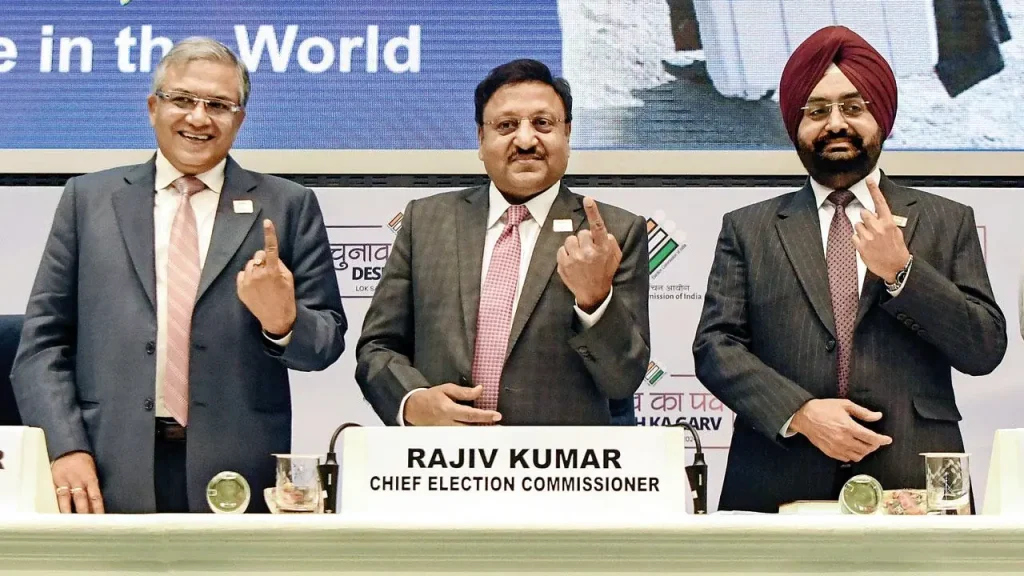Context:
Recently, the President appointed two new Election Commissioners (ECs) thus restoring the full strength of the Election Commission of India (ECI).
More on the News
- Retired IAS officers Gyanesh Kumar and Sukhbir Singh Sandhu were appointed as new Election Commissioners after their selection by the three-member Selection Committee headed by the Prime Minister.
- The Selection Committee comprised of Prime Minister Narendra Modi, Union Home Minister Amit Shah and the Leader of single largest party in the Lok Sabha Adhir Ranjan Chowdhury.
- This is the first time that Election Commissioners have been appointed in accordance with the Chief Election Commissioner and Other Election Commissioners (Appointment, Conditions of Service and Term of Office) Act, 2023 brought in by the government in December last year.
- Before the appointment, the Chief Election Commissioner (CEC) Rajiv Kumar was the sole member in the 3-member ECI. Thus, the appointment restored the full strength of the ECI.
Background
- The Constitution under Article 324 vests the ‘superintendence, direction and control of elections’ in an Election Commission consisting of a CEC and such number of other ECs as the President may from time to time fix.
- However, the Constitution does not lay down any specific process for the appointment of the CEC and ECs. Also, till now there was no law that guided the appointment process.
- Prior to the passage of the current law, the President made the appointment on the recommendations of the Union Council of Ministers headed by the Prime Minister.
- However, in March 2023 in the Anoop Baranwal vs UoI Case, the Supreme Court (SC) emphasised the critical role of an independent ECI in ensuring free and fair elections.
- The SC noted that both the Dinesh Goswami Committee on Electoral Reforms (1990) and the Law Commission’s 255th report on Electoral Reforms (2015) had suggested a committee comprised of the Prime Minister (PM), the Chief Justice of India (CJI), and Leader of Opposition (LoP) in the Lok Sabha for appointment of CEC and ECs.
- The SC in this case used its extraordinary powers under Article 142 (issuing directions for doing ‘complete justice’) and laid down a specific committee consisting of the PM, CJI, and LoP in the Lok Sabha (or leader of the single largest party in the Lok Sabha) to appoint the CEC and ECs.
- Following the directives of the SC in the Anoop Baranwal Case, the Union government brought the new legislation – Chief Election Commissioner and Other Election Commissioners (Appointment, Conditions of Service and Term of Office) Act, 2023
Key Provisions of the law
- It replaced the Election Commission (Conditions of Service of Election Commissioners and Transaction of Business) Act, 1991.
- Appointment Process: The CEC and ECs are appointed by the President on the recommendation of a three-member Selection Committee.
- The Selection Committee consists of the Prime Minister as Chairperson, the Leader of the Opposition in Lok Sabha (or leader of the single largest party in the Lok Sabha) as member, and a Union Cabinet Minister nominated by the Prime Minister as member.
- A Search Committee headed by the Minister of Law and Justice and comprising two other members not below the rank of Secretary to the Government of India shortlist names for the consideration of the Selection Committee.
- The CEC and other ECs hold office for a term of six years from the date on which they assume office or till they attain the age of sixty-five years, whichever is earlier.
- The CEC and other ECs are not eligible for re-appointment.

